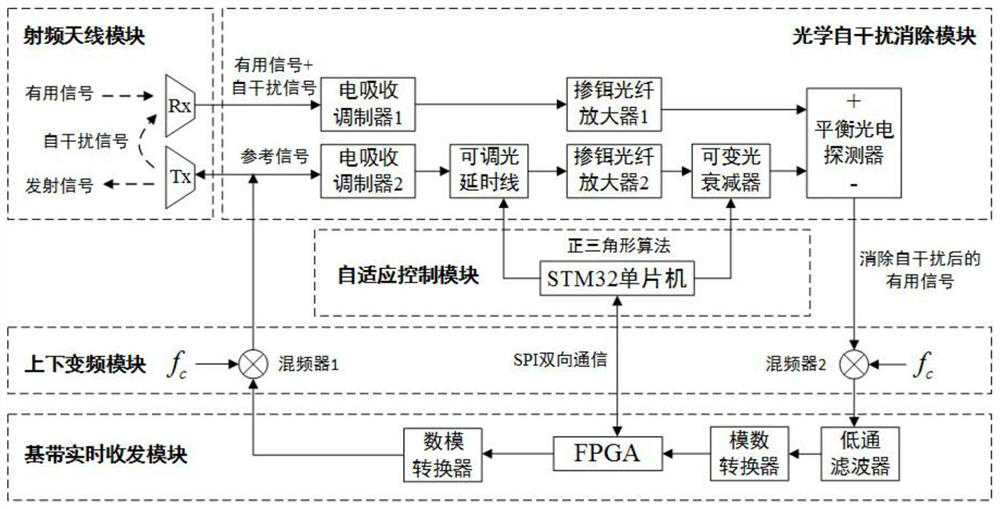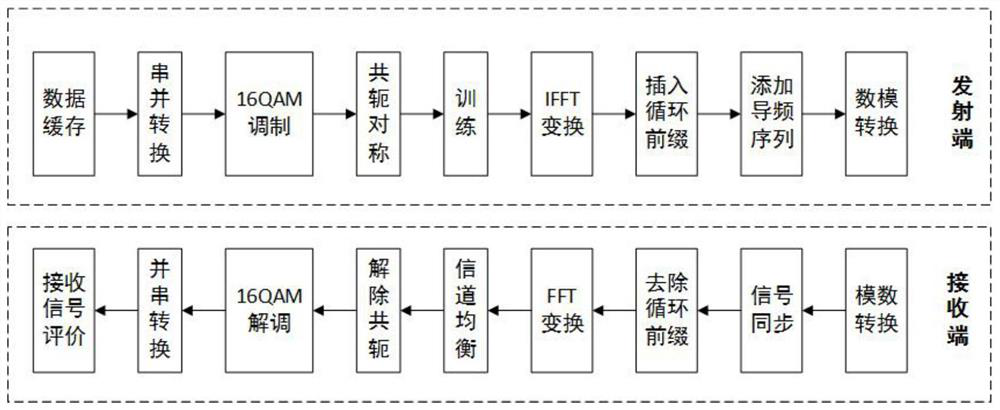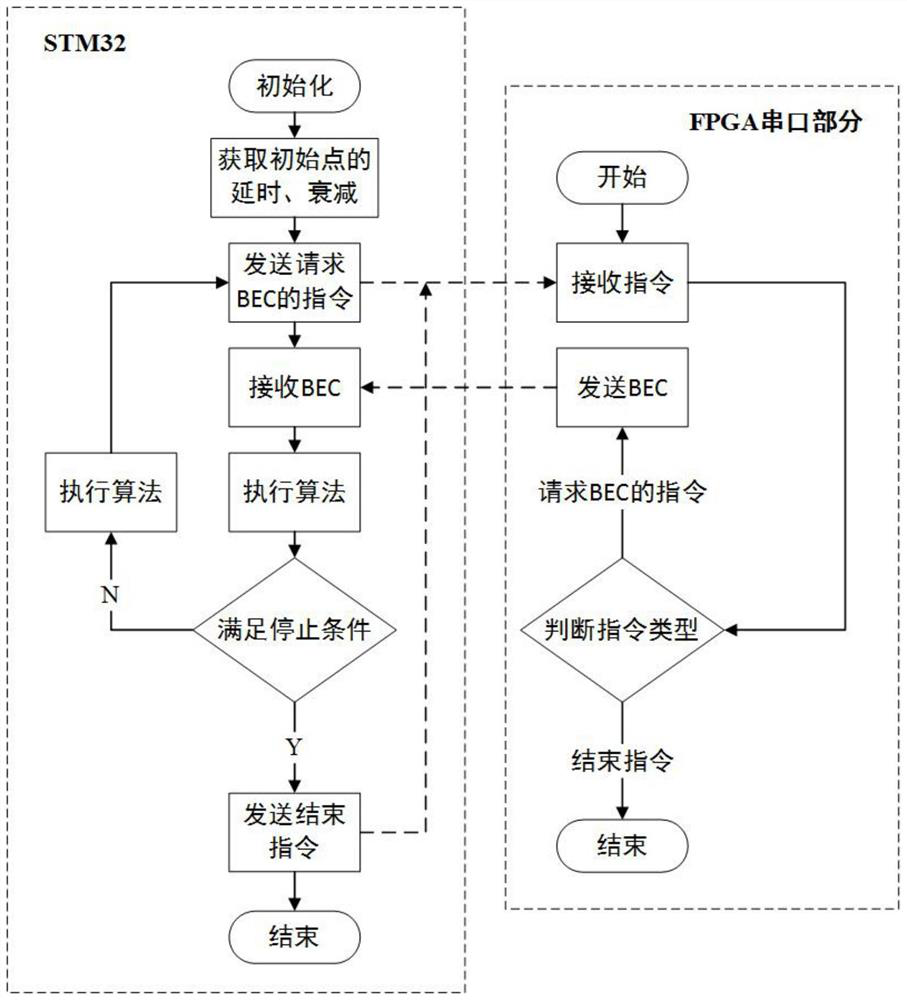Real-time adaptive optical self-interference elimination system and method based on FPGA and STM32
A technology of self-interference elimination and adaptive optics, which is applied in the field of microwave photonics and wireless communication, can solve the problems of poor adaptability, inability to truly apply IBFD wireless communication system, and slow algorithm speed
- Summary
- Abstract
- Description
- Claims
- Application Information
AI Technical Summary
Problems solved by technology
Method used
Image
Examples
Embodiment 1
[0078] The optical self-interference cancellation in the present invention is to copy the transmission signal as a reference signal before the transmission antenna, and then adjust the phase and amplitude of the reference signal to match the self-interference signal from the transmission antenna to the reception antenna as much as possible. Therefore, the balanced photodetector can successfully subtract the self-interfering signal with the reference signal, leaving only the useful signal and completing the information reception.
[0079] Based on this, the precise matching of the reference signal and the self-interference signal becomes the key factor to determine the system cancellation effect. Due to the time-varying nature of the wireless channel, the self-interference signal changes all the time, so the system needs to be able to quickly adjust the phase and amplitude of the reference signal accurately and in real time. The invention utilizes the STM32 single chip microcom...
Embodiment 2
[0141] Embodiment 2 is a modification of embodiment 1
[0142] The real-time adaptive optical self-interference elimination system based on FPGA and STM32 applied to the IBFD wireless communication system provided by the present invention includes: baseband real-time transceiver module, frequency conversion module, radio frequency antenna module, adaptive control module, optical self-interference elimination module;
[0143] Wherein: the baseband real-time transceiver module uses FPGA to generate OFDM signals in real time at the transmitting end, and obtains real-time evaluation indicators after real-time demodulation and reception of OFDM signals from another communication unit at the receiving end, that is, fixed frame number reception The bit error number BEC of the signal; when the STM32 microcontroller sends a request command to the FPGA, the FPGA sends the signal BEC at the current moment to the STM32 microcontroller;
[0144] The up-down conversion module uses a mixer ...
PUM
 Login to View More
Login to View More Abstract
Description
Claims
Application Information
 Login to View More
Login to View More - R&D
- Intellectual Property
- Life Sciences
- Materials
- Tech Scout
- Unparalleled Data Quality
- Higher Quality Content
- 60% Fewer Hallucinations
Browse by: Latest US Patents, China's latest patents, Technical Efficacy Thesaurus, Application Domain, Technology Topic, Popular Technical Reports.
© 2025 PatSnap. All rights reserved.Legal|Privacy policy|Modern Slavery Act Transparency Statement|Sitemap|About US| Contact US: help@patsnap.com



